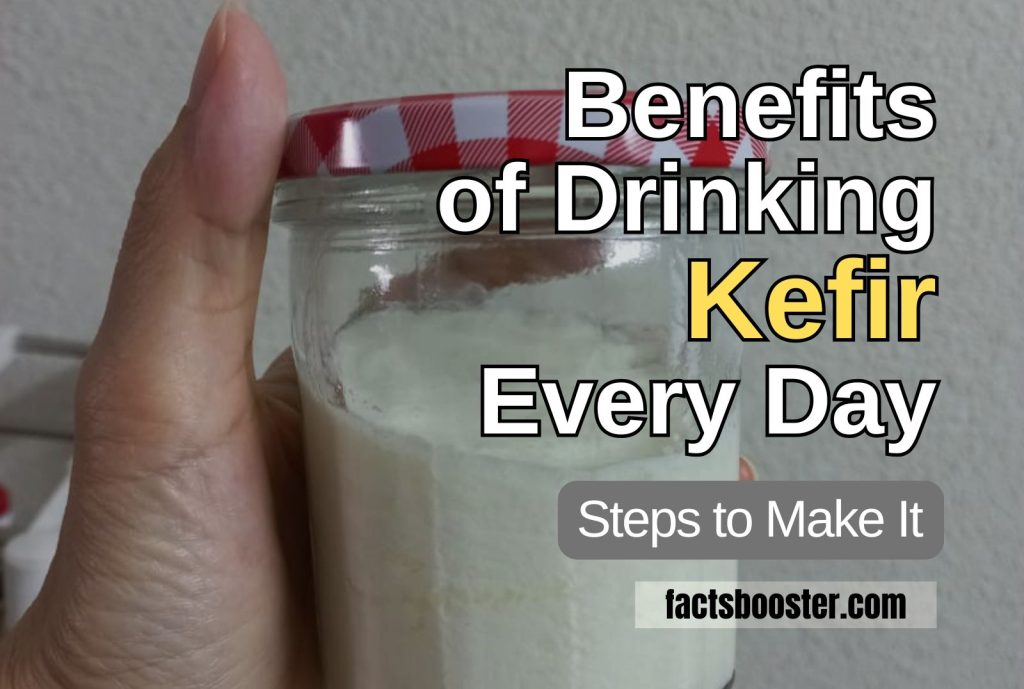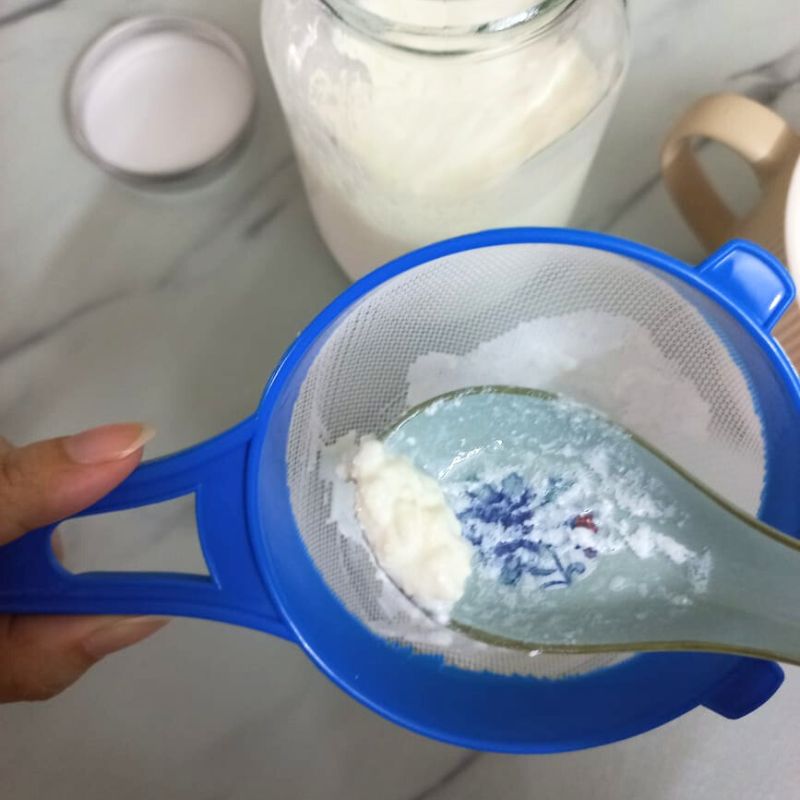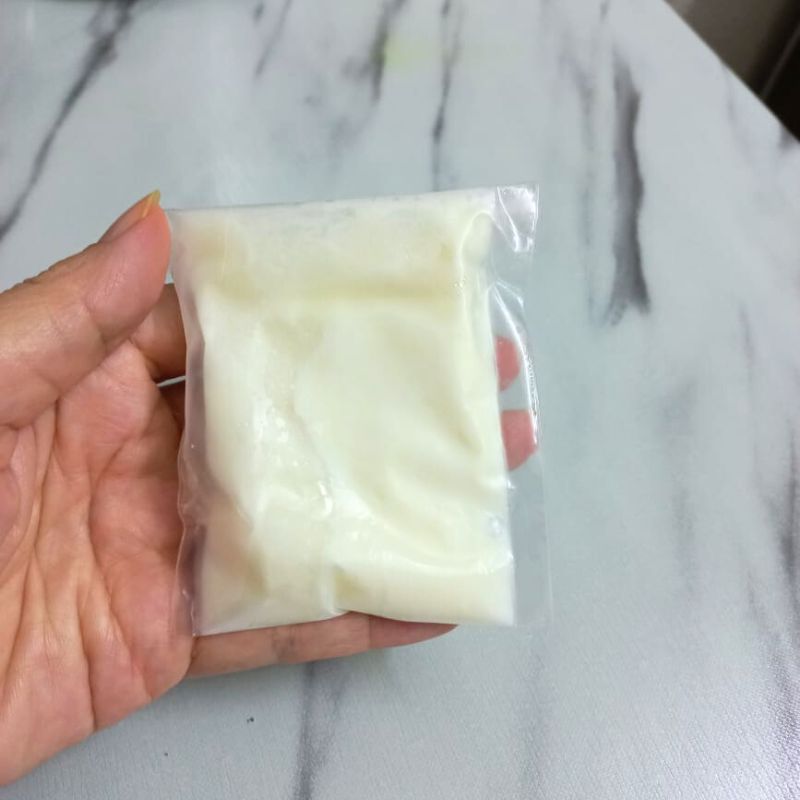Ever wondered about the benefits of drinking Kefir? Ever had that feeling where you eat three normal meals a day, but your stomach always feels bloated? Maybe you deal with occasional constipation, and your skin seems unstable no matter how much you spend on skincare products? Well, this could all be connected to the “bugs” living in your gut.
We’ve all heard that probiotics are good for us, but the market is flooded with expensive probiotic products, and honestly, the results can be hit or miss.
Here’s something interesting: in the Caucasus Mountains, locals have been keeping a secret for hundreds of years – a naturally fermented drink called Kefir. They drink it daily and not only stay strong and healthy with great digestion, but they also tend to live longer than most people.
So why is this ancient drink suddenly getting so much attention? What can it actually do for us? And what if I told you that you could easily make this healthy drink at home? Today, let’s dive into the daily benefits of drinking kefir and how to make it yourself.

What is Kefir?
When most people first hear about kefir, they think: “What the heck is this?” It sounds kinda like yogurt, but it’s actually much more ancient. Kefir is made by fermenting milk (or plant-based alternatives like coconut, almond, or oat milk) with special “kefir grains.” (1)
Don’t let the word “grains” fool you – these aren’t actual grains. They’re living colonies of beneficial bacteria and yeast that look like tiny white cauliflower florets. It’s basically a whole ecosystem of good bugs working together.
One of the key benefits of drinking Kefir is that during fermentation, the lactose in milk gets broken down, so even if you’re lactose intolerant, you can usually enjoy it without issues. It’s packed with probiotics, yeast, protein, B vitamins, and minerals like calcium, magnesium, and phosphorus. Essentially, it transforms regular milk into a more nutritious, easily digestible “living drink.”
The taste is pretty unique too – it’s tangy with a slight natural fizziness, like a cross between yogurt and sparkling water. It’s refreshing and cuts through heavy meals beautifully. Most importantly, it contains way more probiotic strains than regular yogurt, making it incredibly beneficial for gut health. No wonder people get hooked on their daily cup!
What Are the Benefits of Drinking Kefir Every Day?
Many people ask: what are the actual benefits of drinking kefir daily? The impact is often more significant than you’d expect. Let’s break it down. (2)
First, the most noticeable benefit: gut health
Modern life means lots of takeout, greasy foods, and not enough fiber. Result? Constant bloating and sometimes going days without a proper bowel movement. Kefir is loaded with probiotics that act like a repair crew for your gut, helping balance your intestinal bacteria. With diverse bacterial strains keeping the bad guys in check, your digestion becomes smoother. Many people notice improvements in constipation and bloating within just a week or two of daily kefir consumption.
Second, it boosts your immune system
You might not realize this, but a huge portion of our immune system is connected to gut health. Kefir doesn’t just provide probiotics – it also delivers protein, calcium, vitamin D, and other nutrients that fuel your immune system. When your gut environment improves, your body naturally becomes more resistant to illness, and even when you do get sick, recovery tends to be faster.
Third, it helps with weight management and blood sugar control
Many of us worry about weight gain or blood sugar issues. One of kefir’s benefits is increased satiety – drink a glass and you’re less likely to overeat. Research also suggests that probiotics can improve how your body processes sugar, leading to more stable blood sugar levels. For anyone trying to lose weight or control their diet, kefir is a smart choice.
Fourth, it can improve skin issues and allergies
Ever notice how unstable skin leads to breakouts and redness, or how seasonal changes trigger sneezing and itchy eyes? Many of these issues are related to inflammation. The active bacteria in kefir can help reduce inflammatory responses in your body, potentially easing eczema and allergy symptoms while improving skin brightness and stability. Basically, fix your gut environment, and your skin naturally becomes more stable.
Finally, there’s an often overlooked benefit: mental health
Scientists have been buzzing about something called the “gut-brain axis” – the tight communication between your gut and brain. Balanced gut bacteria can influence neurotransmitter production, helping you feel more relaxed and less anxious or depressed. Ever notice how bloating and constipation can make you extra cranky? When your gut feels good, your mood naturally improves too. A daily glass of kefir might seem simple, but it can genuinely support emotional and mental well-being.
In summary, kefir isn’t just a gut helper – it’s basically a full-body health guardian. From digestion to immunity, weight control to skin allergies, even mood management – it impacts everything. No wonder more and more people make it a daily habit once they start. After all, one natural, simple fermented drink delivers value far beyond what you’d imagine.
Kefir vs. Yogurt: What’s the Difference?
When people first hear about kefir, they often ask: “Isn’t this just yogurt?” At first glance, both are fermented dairy products, but the differences are actually huge.
First, the number of bacterial strains
Most yogurts use just 2-3 specific lactic acid bacteria strains for fermentation, creating consistent taste and texture. Kefir, however, is like a “big family” containing not only lactic acid bacteria but also yeasts – dozens of different strains creating a much more complex probiotic combination.
Second, the fermentation process
Yogurt undergoes simple lactic acid fermentation, resulting in a thick, tangy product. Kefir involves both lactic acid bacteria and yeast working together, creating not just tanginess but also natural carbonation – like a lightly fizzy yogurt drink.
Third, nutritional and taste differences
Yogurt is typically thick and smooth, perfect with fruit and granola for breakfast. Kefir is more liquid with a tangy, slightly fizzy quality – more like a refreshing health drink that cuts through rich foods.
Fourth, health effects
While yogurt certainly contains probiotics, kefir’s diverse strains often make it superior for maintaining gut balance and increasing bacterial diversity. It provides more comprehensive bodily support.
Kefir: The Easiest Fermented Food to Make!
When most people think about making fermented foods at home, their first reaction is: “Wow, that sounds complicated – fermentation, temperature control, special equipment.” But if you try kefir, you’ll quickly realize not only how simple it is, but also why so many people love it. The benefits of drinking Kefir are huge, and making it at home is easier than you might think. Kefir is arguably the easiest fermented food to make.
First, you don’t need complex equipment – just a clean glass jar, milk or plant-based milk, and you’re ready to start. Add the kefir grains, and they do the work automatically. You don’t even need strict temperature control – room temperature works for most of the fermentation process.
Even better, once kefir grains are active, they keep multiplying with each batch, so there’s virtually no ongoing cost. Unlike sauerkraut, miso, or kombucha that take days or weeks to complete, kefir only needs 1-2 days to produce a healthy drink.
Compared to other fermented foods, kefir has the lowest barrier to entry, simplest steps, and most reliable results. For busy modern people, being able to easily make probiotic drinks at home daily saves both time and money while enjoying the health benefits of natural fermented foods. Simple, quick, safe, and effective – that’s one reason kefir is so popular.
How to Make Kefir at Home
If you want to try making kefir at home, it’s actually way simpler than you’d think – no complex tools or special skills required.
Materials needed:
- A bottle of milk or your preferred plant-based milk (coconut, almond, oat milk all work)
- Kefir grains – you can buy these online or get some from a friend
- A clean glass jar and a strainer
Simple steps:
- Put kefir grains into the milk and gently stir
- Cover and let sit at room temperature for 12-24 hours
- Adjust timing based on your taste preference – longer fermentation means more tang and fizziness
- Strain out the grains with your strainer
- The liquid is your ready-to-drink kefir, and the grains can be reused indefinitely


Pro tips for success:
- Summer heat speeds fermentation, so reduce timing accordingly
- Avoid metal utensils to prevent affecting bacterial activity
- For longer storage, refrigerate finished kefir to slow fermentation and stabilize taste
You’ll find that making a daily glass of vibrant kefir at home is not only simple and healthy but also incredibly satisfying. It’s more natural and trustworthy than store-bought probiotic drinks.
Common Questions and Considerations
Many people have questions when first trying kefir. Let’s address them:
1. Can lactose-intolerant people drink it?
Most people can, because during fermentation, kefir’s lactose gets partially broken down by the bacterial cultures, usually causing no discomfort.
2. How much should I drink daily?
Start with 100-200ml per day and observe your body’s response before gradually increasing. Don’t drink too much at once – your body needs time to adjust to increased probiotics.
3. Can it over-ferment?
If fermentation goes too long, kefir becomes very sour and might taste unpleasant. Just reduce fermentation time for your ideal taste.
4. Can pregnant women or children drink it?
Generally safe, but moderation is key. Especially for children or pregnant women, start with small amounts and let the body gradually adjust.
Overall, as long as you control quantity and fermentation time, kefir is a very safe, healthy daily drink with virtually no side effects. Drink a little daily, and your gut will feel comfortable while your body gradually experiences the benefits.
Conclusion
The benefits of drinking Kefir every day are numerous: it improves gut health for smoother digestion, boosts immunity for better resistance, and helps with weight control as a natural, rich source of probiotics. When you consider the benefits of drinking Kefir, it’s easy to see why so many people make it a daily habit. Best of all, you can easily make it at home – the process is simple, low-cost, and achievable for almost everyone.
So why not start today by making a glass of kefir for yourself and your family? Watching those tiny grains ferment and grow is not only satisfying but also lets you enjoy genuine health benefits. A daily glass is like giving your body a dose of natural, gentle care – this drink truly is the most accessible gift of health you can give yourself.


